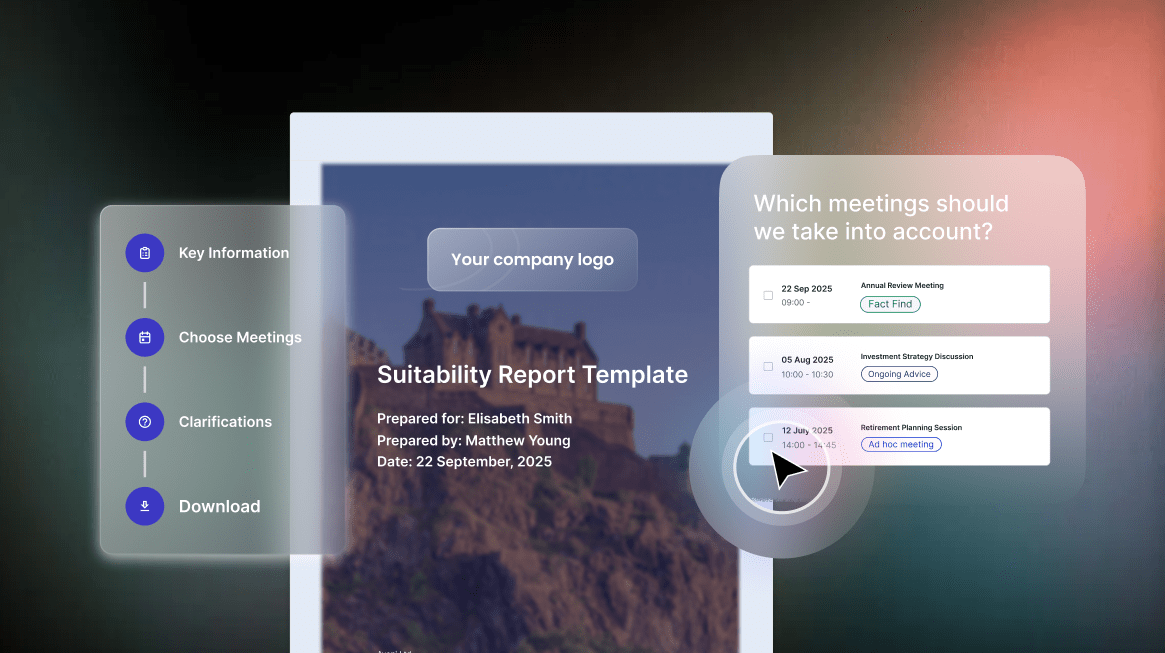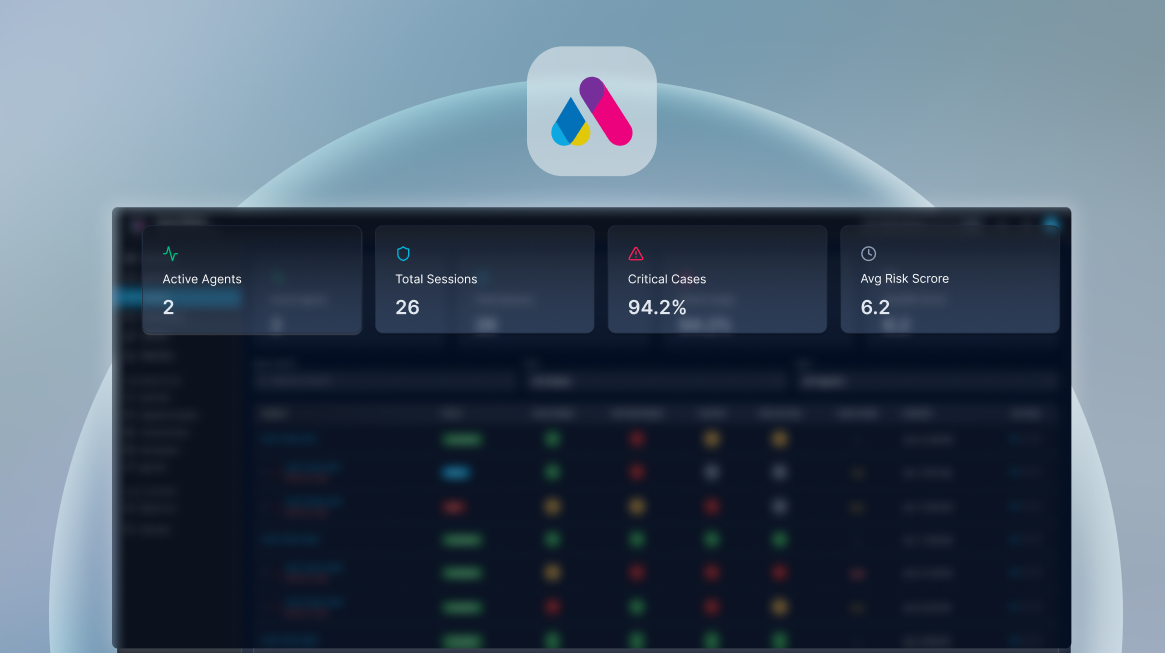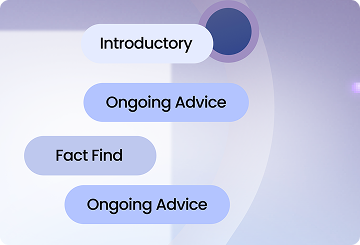How does AI improve productivity in financial advice firms?
AI improves productivity by automating admin tasks, streamlining compliance checks, and freeing teams to focus on client outcomes.
Key benefits of AI for financial services:
- Automates meeting notes, CRM updates, and documentation
- Reduces time spent on manual compliance reviews
- Identifies risks and vulnerabilities in real time
- Improves consistency across adviser workflows
- Supports faster, more confident decision-making
- Frees up capacity for growth and innovation
- Aligns with FCA expectations and firm policies
Six Months, Hundreds of Conversations: Here’s What Advice Firms Are Really Struggling With
Let’s face it, today’s financial services professionals are overwhelmed.
Whether it’s managing client expectations, ticking compliance boxes, or simply surviving the mountain of admin work, the day-to-day grind is pushing teams to the brink. We’ve been speaking to firms across the industry, and the message is loud and clear: the current way of working is broken.
But there’s hope. And it starts with smarter technology, not more spreadsheets or headcount. In this post, we’re digging into the biggest challenges firms are facing and how AI can offer real, measurable relief.
1. The Process Paradox: Too Much Demand, Not Enough Structure
Every firm we spoke to shared a similar story. On one hand, there’s relentless pressure to win new clients. On the other hand, there’s the equally important task of nurturing and servicing existing ones. Add product improvements to the mix, especially for enterprise clients, and it becomes chaos.
The real problem? There’s no consistent, scalable way to manage it all.
“We’ve got teams pulling in different directions, and client requests flying in with no clear process. It’s hard to even know who’s doing what, let alone deliver quickly.” – Wealth Management Firm
AI can help bring order to this madness. Intelligent workflow automation tools can triage tasks, track turnaround times, and give leaders visibility into capacity. AI-powered triage systems can also analyse requests and assign them based on urgency, complexity, or even past success rates. That means fewer bottlenecks and more time doing high-value work.
2. Admin Overload: The Hidden Time Sink
Ask any adviser or paraplanner what’s eating their week, and admin will top the list. Meeting notes take an hour, CRM updates nearly as long, and that’s before we talk about compliance documentation and report writing.
This level of inefficiency drains motivation and wears teams down.
“I didn’t train for years just to spend half my day copying names and addresses into a CRM. It’s soul-destroying.” – Financial adviser, regional firm
This is where AI really earns its stripes. Natural language processing and GenAI tools like Aveni Assist can instantly generate accurate meeting notes, flag action items, and even pre-fill CRM fields. Better still, voice-to-text tools can pick up insights in real-time, turning conversations into structured data, reports, or even suitability documentation, without anyone lifting a pen (or opening a spreadsheet).
→ Read how automation is cutting suitability report times from hours to minutes
3. Compliance Pressure: Manual Checks Are Slowing Teams Down
The regulatory workload in financial services keeps piling up.
From Consumer Duty to vulnerability monitoring and FCA file checking, compliance teams are being buried in manual work. One team told us it takes them 1.5 hours to review a single client file, manually, while others are losing days to inconsistent documentation across firms.
AI can change this.
Modern AI systems such as Aveni Detect can be trained on FCA guidelines and internal policies to automatically review documentation, highlight gaps, and even suggest improvements. For vulnerability, AI can continuously monitor conversations and intelligently triage cases, reducing the workload while actually improving protection.
Now, AI can also check compliance directly from adviser calls. It flags risks before a file review is even needed. Advisers can act immediately by clarifying language, updating documentation, or resolving issues on the spot.
This creates a smarter feedback loop: fewer delays, less rework, and better alignment between the front line and QA teams. Compliance becomes part of the conversation, not an extra layer to wade through.
4. Growth Bottlenecks: Capacity Capping Potential
Everyone wants to scale, but few have the headroom.
Firms are hitting capacity limits, not because of a lack of demand, but because manual processes are eating into productivity. Some firms are doing over 300 annual reviews, spending more than 48 hours a month on admin alone.
That’s time better spent advising clients or growing the business.
AI unlocks growth by absorbing the tasks that don’t need human judgment, summarising meetings, drafting reports, and updating systems. When teams are no longer bound by admin, they can scale without adding equivalent support staff.
Final Thoughts: AI Is Here to Support People, Not Replace Them
The financial services industry isn’t short on talent. What it lacks is the infrastructure to let that Financial services isn’t short on talent. What’s missing is the infrastructure to help that talent deliver more impact.
AI creates space for teams to focus on what matters. It gives leaders a clearer view of risks and opportunities. And it helps firms respond quickly to market shifts without overwhelming their people.
Our CEO, Joseph Twigg, spoke about this very recently at the intelliflo innovate conference. Here’s the full article.
Firms that adopt AI with purpose will do more than keep up. They’ll define what good looks like in the next phase of the industry.
If your team is struggling with similar challenges, let’s talk. At Aveni, we’re building AI solutions designed specifically for the realities of financial services, so you can do more, stress less, and stay compliant, all at once.
📩 Book a demo or drop us a line at hello@aveni.ai
FAQs: AI in Financial Advice and Compliance
What are the biggest productivity challenges in financial advice firms today?
Advice firms are struggling with poor internal processes, administrative overload, compliance pressure, and limited capacity for growth. These issues are slowing down teams and increasing the risk of burnout.
How can AI reduce admin for financial advisers?
AI tools can automate meeting notes, CRM updates, and report generation. This frees up advisers to spend more time on client engagement and advice, rather than data entry or formatting documents.
Can AI really help with compliance in financial services?
Yes. AI systems like Aveni Detect can review client documentation against FCA rules, flag missing information, and monitor for signs of vulnerability in adviser conversations.
Will AI replace compliance or advice roles?
No. AI is designed to support these roles by reducing low-value, repetitive work. It helps professionals focus on judgment, relationship building, and strategic decision-making.
What makes Aveni’s AI different from generic tools?
Aveni’s solutions are purpose-built for regulated financial services. That means they’re aligned to FCA rules, firm policies, and the specific language used in advice conversations. They’re also built with governance, auditability, and transparency in mind.
How can firms start using AI without disrupting their current operations?
A phased approach works best. Firms often start with tools like automated meeting notes or call monitoring, then expand into broader workflow and compliance automation as teams build confidence.









